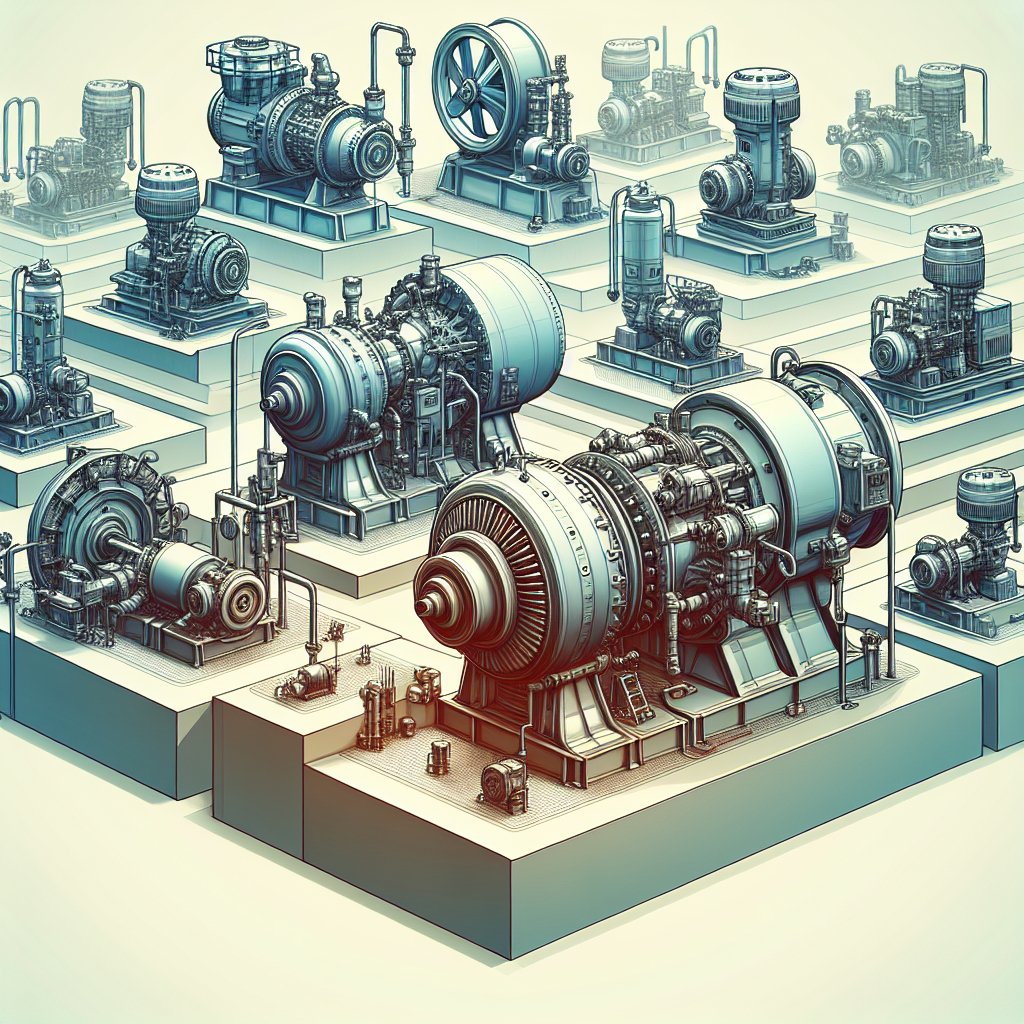
Industrial centrifugal pumps are a cornerstone of modern engineering, playing a crucial role in a wide range of applications across various industries. These pumps are designed to move fluids by converting rotational kinetic energy to hydrodynamic energy, making them indispensable in processes that require the efficient and reliable transfer of liquids. In this article, we will delve into the different types of industrial centrifugal pumps and explore their diverse applications, highlighting their significance in today’s industrial landscape.
Types of Industrial Centrifugal Pumps
Centrifugal pumps come in various types, each designed to meet specific operational requirements and handle different kinds of fluids. Understanding the distinctions between these types is essential for selecting the right pump for a given application.
Single-Stage Centrifugal Pumps
Single-stage centrifugal pumps are the most basic form of centrifugal pumps, featuring a single impeller. They are widely used for applications that require moderate flow rates and pressures. These pumps are ideal for water supply systems, irrigation, and general industrial services. Their simple design makes them easy to maintain and cost-effective, making them a popular choice for many industries.
Multi-Stage Centrifugal Pumps
Multi-stage centrifugal pumps consist of multiple impellers mounted on the same shaft. Each stage increases the pressure of the fluid, making these pumps suitable for applications that require high pressure, such as boiler feedwater systems, high-pressure cleaning, and reverse osmosis. The ability to achieve high pressures with relatively low flow rates makes multi-stage pumps versatile and efficient for specific industrial needs.
Axial Flow Pumps
Axial flow pumps, also known as propeller pumps, move fluid in a direction parallel to the pump shaft. These pumps are designed for high flow rates and low head applications, such as flood control, irrigation, and circulation of large volumes of water in treatment plants. Their design allows for efficient handling of large volumes of fluid with minimal energy consumption.
Radial Flow Pumps
Radial flow pumps are characterized by the fluid flowing perpendicular to the pump shaft. These pumps are suitable for applications requiring high head and low flow rates. They are commonly used in chemical processing, oil refining, and water treatment plants. The design of radial flow pumps allows them to handle viscous fluids and slurries, making them versatile for various industrial processes.
Mixed Flow Pumps
Mixed flow pumps combine the features of axial and radial flow pumps, allowing fluid to move in both axial and radial directions. These pumps are suitable for applications that require a balance between flow rate and pressure, such as cooling water circulation, sewage treatment, and industrial water supply. Their hybrid design makes them adaptable to a wide range of industrial applications.
Applications of Industrial Centrifugal Pumps
The versatility of centrifugal pumps makes them indispensable in numerous industries. Their ability to handle different types of fluids and operate under various conditions allows them to be used in a wide array of applications.
Water and Wastewater Management
Centrifugal pumps are extensively used in water and wastewater management systems. They play a critical role in the distribution of potable water, sewage treatment, and flood control. Their ability to handle large volumes of water efficiently makes them ideal for municipal water supply systems and wastewater treatment plants.
Oil and Gas Industry
In the oil and gas industry, centrifugal pumps are used for transporting crude oil, refined products, and natural gas liquids. They are also employed in offshore drilling operations and refineries. The robust design of these pumps allows them to handle the harsh conditions and corrosive fluids commonly found in the oil and gas sector.
Chemical Processing
Chemical processing plants rely on centrifugal pumps for the transfer of chemicals, solvents, and other process fluids. These pumps are designed to handle corrosive and hazardous materials, ensuring safe and efficient operation. Their ability to maintain consistent flow rates and pressures is crucial for maintaining the integrity of chemical processes.
Power Generation
In power generation, centrifugal pumps are used for boiler feedwater, cooling water circulation, and condensate extraction. Their ability to handle high pressures and temperatures makes them suitable for the demanding conditions of power plants. The reliability and efficiency of centrifugal pumps are essential for maintaining continuous power generation.
Food and Beverage Industry
The food and beverage industry utilizes centrifugal pumps for the transfer of liquids such as milk, juices, and sauces. These pumps are designed to meet strict hygiene standards, ensuring the safe handling of food products. Their ability to handle viscous fluids and maintain consistent flow rates is vital for food processing operations.
In conclusion, industrial centrifugal pumps are a vital component of modern engineering, offering a wide range of types and applications to meet the diverse needs of various industries. Their ability to efficiently transfer fluids under different conditions makes them indispensable in processes that require reliable and consistent fluid movement. Understanding the different types of centrifugal pumps and their applications is crucial for selecting the right pump for specific industrial needs, ensuring optimal performance and efficiency.

